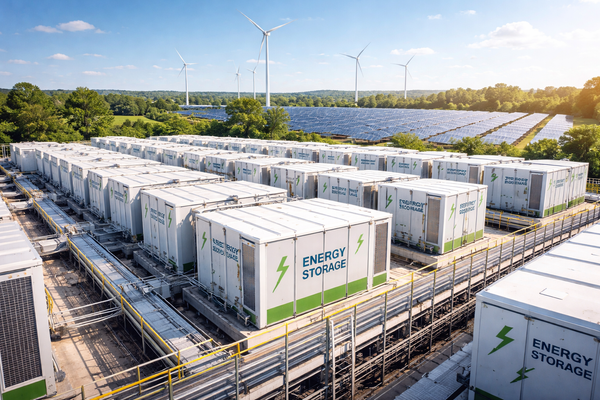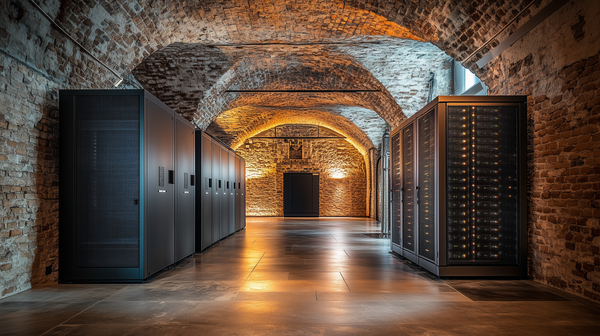The Future of Green Energy and Low Energy Cooling Solutions: A Crucial Intersection with AI Growth

As the world stands on the brink of an unprecedented technological revolution, the intersection of green energy and advanced cooling solutions is becoming increasingly vital. With artificial intelligence (AI) poised to drive massive advancements across industries, the energy demands of our data centres and computational infrastructure are skyrocketing. In this landscape, sustainable energy sources and innovative cooling techniques like immersion cooling are not just beneficial but essential. Here’s a closer look at why these technologies are critical and how they will shape our future.
The Surge of AI and Energy Demands
Artificial intelligence, particularly in the form of machine learning and deep learning, is transforming sectors ranging from healthcare and finance to manufacturing and entertainment. These complex AI algorithms require immense computational power, leading to the expansion of data centres worldwide. Data centres, the backbone of AI infrastructure, are already significant consumers of electricity, and their energy needs are set to grow exponentially.
Traditional data centres rely heavily on air-based cooling systems, which are not only energy-intensive but also less efficient as server densities increase. As AI continues to evolve, the need for more powerful and energy-efficient cooling solutions becomes apparent. This is where green energy and low energy cooling solutions come into play.
The Promise of Green Energy
Green energy, derived from renewable sources like solar, wind, hydro, and geothermal power, is pivotal in reducing the carbon footprint of our burgeoning digital landscape. As AI-driven data centres proliferate, integrating green energy can help mitigate the environmental impact. Solar and wind power, in particular, offer scalable solutions that can be deployed near data centres to provide sustainable power directly.
The transition to green energy is not just about environmental benefits; it also offers economic advantages. Renewable energy sources are becoming increasingly cost-competitive compared to fossil fuels. Additionally, advancements in energy storage technologies, such as battery storage and pumped hydro, are addressing the intermittency issues of solar and wind power, making them more reliable.
Immersion Cooling: A Better Approach
Switching to more sustainable sources of energy is only part of the story, we must also ensure we're consuming energy as efficiently as possible. Air-based cooling is highly wasteful of energy when compared to other options, such as immersion cooling.
Unlike traditional air cooling, immersion cooling involves submerging computer components in a thermally conductive but electrically insulating liquid. This method offers several significant advantages:
- Enhanced Efficiency: Immersion cooling can dissipate heat more effectively than air cooling, leading to lower energy consumption for cooling purposes. This is particularly beneficial as server densities increase with AI workloads.
- Reduced Carbon Footprint: By improving cooling efficiency, immersion cooling reduces the overall energy consumption of data centres, leading to a smaller carbon footprint. When paired with renewable energy sources, the environmental benefits are amplified.
- Space Optimization: Immersion cooling allows for more compact data centre designs since it eliminates the need for extensive air conditioning infrastructure. This can lead to cost savings in both construction and operational expenses.
- Scalability: As AI applications grow, the ability to scale cooling solutions efficiently is crucial. Immersion cooling systems can be easily scaled to meet the demands of expanding data centres without a corresponding increase in energy usage.
- Heat Recovery: Unlike air-based cooling where the heat generated by servers is treated as "waste", with immersion cooling it is a comparatively simple process to transfer the heat captured in the liquid to a building or district heating circuit providing heating and hot water to nearby offices and homes and further reducing energy consumption.
The Synergy of Green Energy and Immersion Cooling
The integration of green energy with immersion cooling solutions creates a powerful synergy that addresses both the energy and cooling challenges of AI-driven data centres. By powering data centres with renewable energy and employing immersion cooling, we can achieve a more sustainable and efficient infrastructure.
Moreover, this combination supports the broader goals of reducing greenhouse gas emissions and promoting energy independence. As data centres adopt these technologies, they set a precedent for other industries, encouraging widespread adoption of green practices.
Looking Ahead
The future of green energy and low energy cooling solutions like immersion cooling is bright, particularly as we navigate the complexities of AI growth. Policymakers, industry leaders, and innovators must collaborate to promote research, development, and deployment of these technologies. Investment in green energy infrastructure and advanced cooling methods will be critical to ensuring that our technological advancements do not come at the expense of our planet.
As we stand at this critical juncture, the choices we make today will shape the future of technology and sustainability. Embracing green energy and innovative cooling solutions is not just a necessity but a responsibility. By doing so, we can power the AI revolution sustainably, ensuring a prosperous and environmentally friendly future for generations to come.
And that is why at blocz we pride ourselves on innovating not only the technology that drives AI, but also the technology that cools it.




